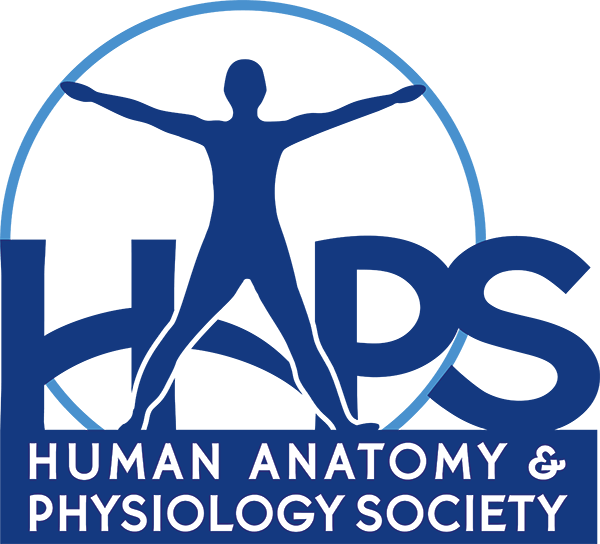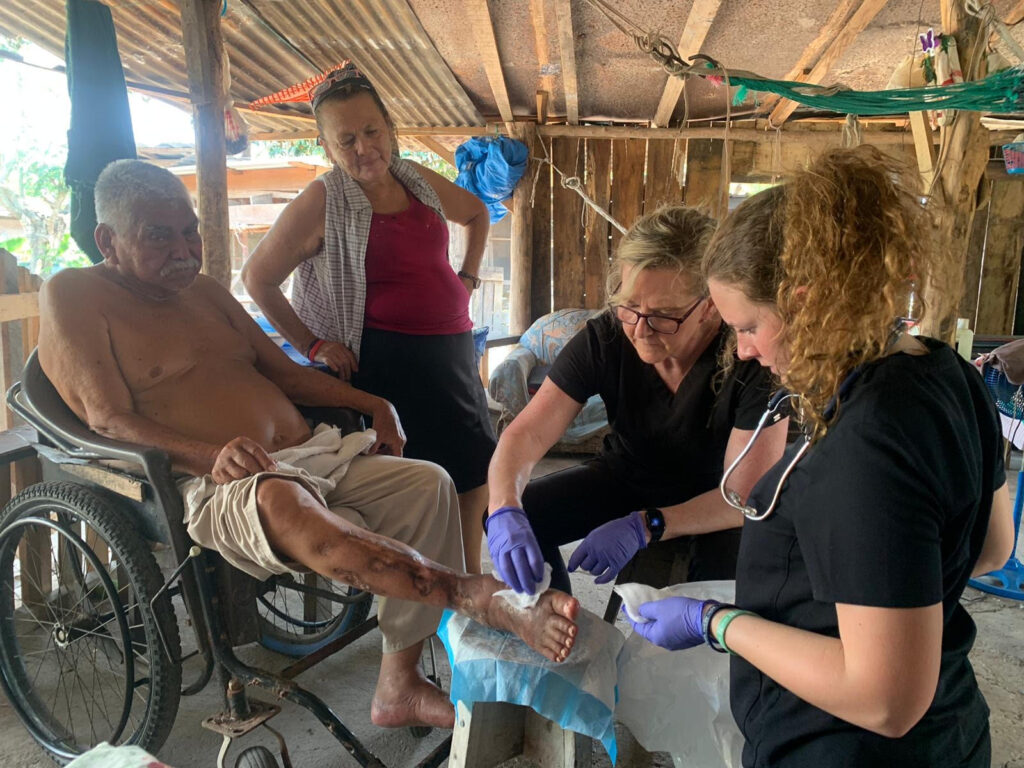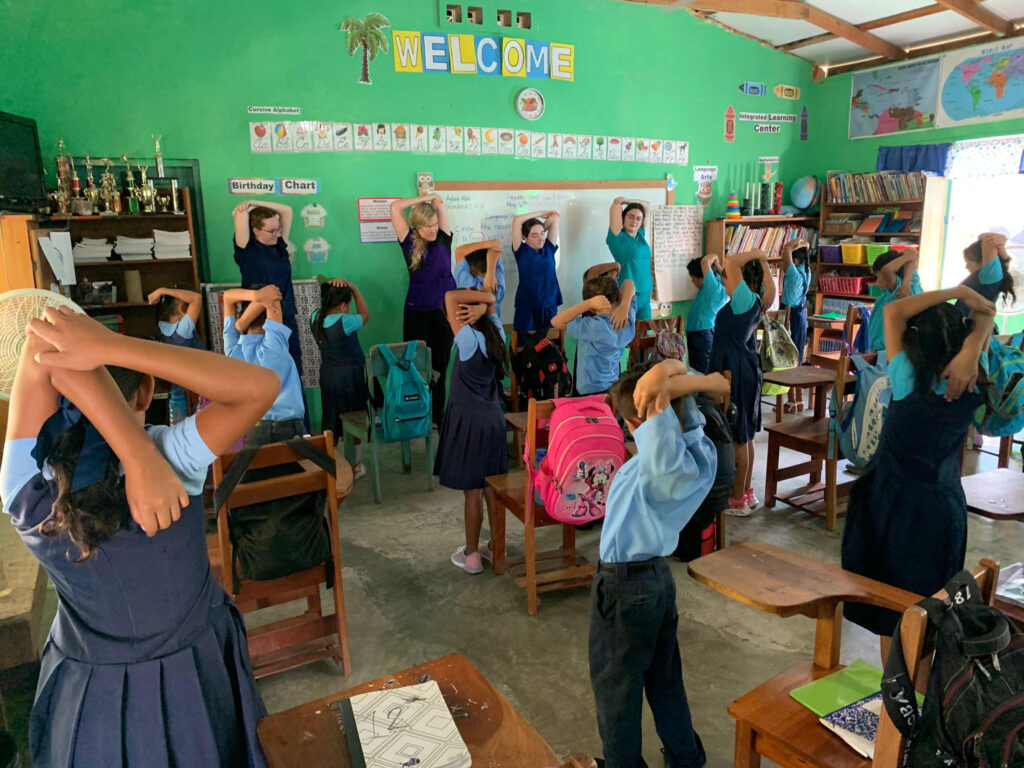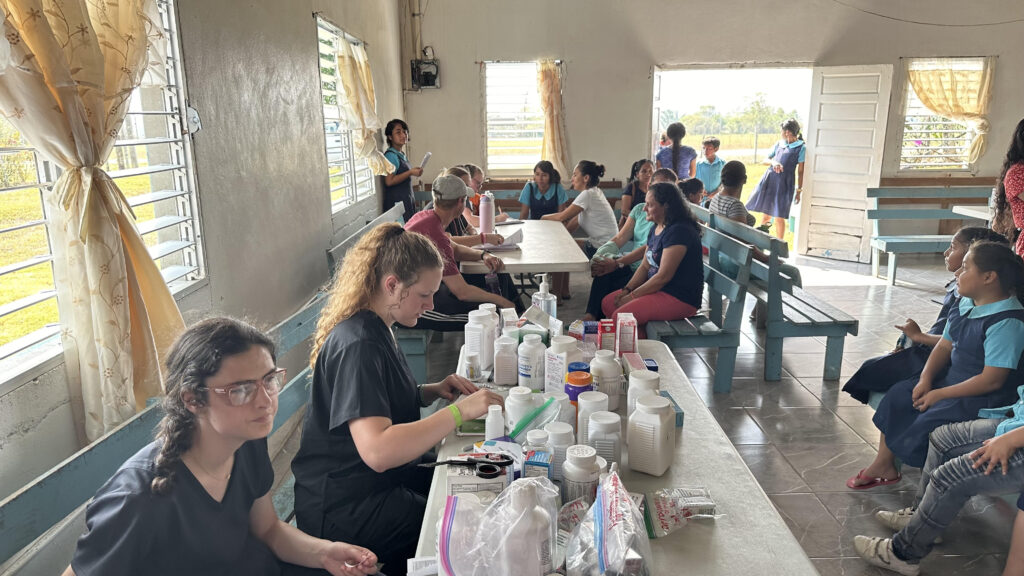As a professor, I’ve witnessed the dedication and passion of my students daily, but sometimes, the most profound lessons happen outside the classroom. Recently, I had the privilege of co-leading a group of health science students on a medical mission trip to Belize. The group consisted of 8 undergraduate pre-nursing students and 2 physician assistant students in their first semester of PA school. The co-leaders included two board-certified Doctors of Physical Therapy (myself included) and a licensed Nurse Practitioner. Overall, this turned out to be an experience that allowed students to surpass textbook learning and transformed their understanding of anatomy, physiology, healthcare, and themselves.

Belize provided a unique healthcare landscape. Limited resources and a diverse patient population forced my students to adapt and improvise. They took histories and vital signs, assisted in patient assessments, assessed blood glucose levels, and dispensed basic medications – all under the guidance of experienced medical professionals. They held each other accountable for knowing where different organs are located, what healthy blood pressure ranges and respiration rates are, and how dysfunctions of different organ systems might manifest. This hands-on experience solidified their theoretical knowledge and exposed them to new medical conditions. The true growth, however, came from student interactions with patients.
Because many of the patients spoke limited English—and most of my students spoke little to no Spanish—there was definitely a communication barrier. We had to rely on nonverbal cues as well as a few people who volunteered to translate for us. This fostered a deeper understanding of cultural sensitivity and the importance of patient-centered care. Witnessing the resilience of the patients in the face of limited resources instilled a newfound appreciation for the healthcare systems within which these students will eventually work.
The trip wasn’t just about clinical skills. It fostered teamwork and collaboration as students relied on each other to navigate unfamiliar situations. They had to work together and share their knowledge with one another to fully treat patients. Their confidence blossomed as they overcame challenges and took initiative. Witnessing their transformation from apprehensive learners to assertive caregivers was truly inspiring!
In addition to providing clinical services, we also broke into small groups and provided educational sessions to students at different schools in various communities. Topics included personal hygiene, nutrition and exercise, first aid, and even an introduction to sex education. Our health sciences students embraced the role of teacher and provided the younger students with important information they might not otherwise have received.
Heading back to the U.S., a newfound energy permeated the group! Each of the leaders commented on how much more engaged the students were after being enriched by real-world experiences in global health and cultural competency. So this trip wasn’t just a service project; it was a catalyst for personal and professional growth that helped solidify the students’ commitment to healthcare and equipped them with the skills and compassion to become exceptional caregivers.
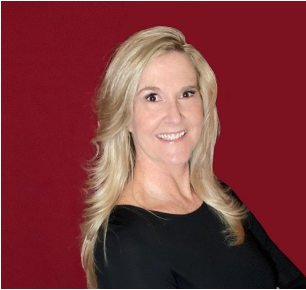
Dr. Peggie Williamson is an Assistant Professor in the Doctor of Physical Therapy Program at the University of Mary Hardin-Baylor and an Adjunct Professor for the MS in Human Anatomy and Physiology Instruction at Northeast College of Health Sciences.
